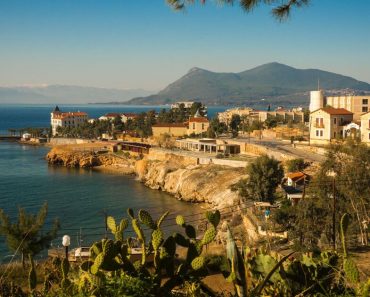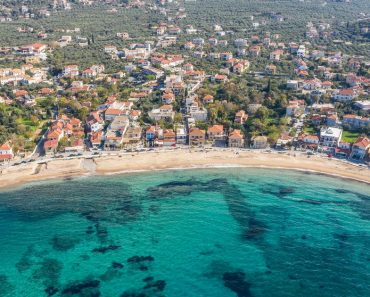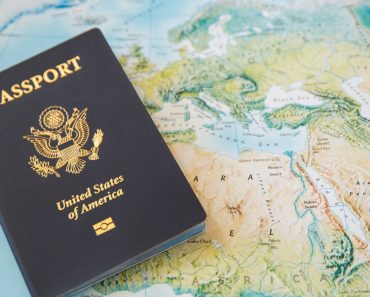Wednesday, October 16, 2024

Greece, a beloved destination for millions of tourists each year, faces growing concerns over tourist congestion in a few specific locations during peak months. Speaking at the “Reimagine Tourism in Greece by Kathimerini” conference in Athens, Greek Prime Minister Kyriakos Mitsotakis addressed the issue in a discussion titled “Tourism as a Strategic Priority for Greece.” The prime minister dismissed the notion that Greece is dealing with overtourism, instead focusing on localized congestion in popular destinations like Santorini and Mykonos.
As the tourism industry continues to be a key pillar of Greece’s economy, Mitsotakis emphasized that managing the influx of visitors is crucial to maintaining the country’s appeal. While some of Greece‘s top destinations are experiencing the effects of overcrowding and overdevelopment, the government is actively working to ensure that these pressures do not negatively impact the overall tourism experience.
Tourist Congestion vs. Overtourism: A Clarification
During the conference, Kathimerini Director Alexis Papahelas asked Mitsotakis about the issue of overtourism in Greece. The prime minister was quick to clarify that Greece is not experiencing a broad overtourism problem like other countries may be facing. “Greece does not have, nor will it have, an overtourism problem,” Mitsotakis stated, referencing comparisons to destinations such as Spain and Mallorca. He added that while Greece is generally in a much better situation, specific areas like Santorini and Mykonos have seen significant congestion, especially during the summer months.
Tourism congestion refers to the overwhelming number of tourists visiting these islands during peak season, leading to challenges such as overcrowded streets, limited infrastructure, and environmental degradation. These challenges can affect both visitors’ experience and the quality of life for locals.
Sustainable Development and Halting New Building Permits
In his address, Mitsotakis acknowledged the pressure that Mykonos and Santorini face during peak tourism months. To combat these issues, the Greek government has taken proactive measures by halting new building permits on these islands. This decision, Mitsotakis explained, allows the government to thoroughly assess the impact of rapid infrastructure growth and overdevelopment. By freezing new developments, Greece can prevent further strain on local resources while taking the time to develop comprehensive spatial plans aimed at sustainable growth.
“We are well aware that Santorini and Mykonos add significant value to our tourism sector,” Mitsotakis said. “At the same time, we recognize that the pressures these islands face could ultimately harm our tourism product.” The prime minister stressed that market self-regulation alone is not enough to solve the problem and that government intervention is essential to protect the long-term viability of these popular destinations.
This approach is part of a larger government initiative to implement spatial planning reforms across the country. By aligning infrastructure development with sustainability goals, Greece aims to ensure that popular tourist destinations continue to thrive without sacrificing their natural beauty or local culture.
The Role of Tourism in Greece’s Economy
Tourism is a cornerstone of Greece’s economy, contributing significantly to the country’s GDP. In 2022, Greece welcomed over 30 million international visitors, and that number is expected to continue growing. Popular destinations like Santorini and Mykonos are key drivers of this success, attracting tourists with their picturesque landscapes, luxurious accommodations, and vibrant nightlife. However, the rapid increase in visitor numbers has led to growing concerns about the long-term sustainability of tourism on these islands.
Mitsotakis underscored the importance of balancing economic growth with environmental and cultural preservation. “I don’t want us to reach a point where these islands are so overwhelmed that visitors no longer enjoy their experience,” he said, highlighting the need for proactive measures to ensure that tourist hotspots maintain their appeal.
Government Interventions for Sustainable Tourism
One of the key takeaways from Mitsotakis’ speech was the emphasis on government intervention to maintain sustainable tourism growth. Rather than relying solely on market forces to regulate the flow of tourists, the Greek government has taken steps to directly manage tourism-related pressures. By freezing new developments and implementing spatial planning reforms, Greece is working to protect its most popular destinations from the negative effects of overdevelopment.
The government’s approach is twofold: first, to preserve the natural and cultural heritage of destinations like Santorini and Mykonos, and second, to ensure that visitors have a positive and memorable experience. This balance is critical to maintaining Greece’s reputation as a world-class travel destination.
Mitsotakis also touched on the importance of diversifying tourism across the country. While Santorini and Mykonos will remain central to Greece’s tourism industry, the government is encouraging travelers to explore lesser-known destinations. By promoting a wider range of locations, Greece hopes to distribute tourism more evenly, reducing pressure on the most popular islands while bringing economic benefits to other regions.
The Future of Greek Tourism
Looking ahead, the Greek government’s approach to managing tourism congestion is likely to serve as a model for other destinations facing similar challenges. By focusing on sustainable development and proactive interventions, Greece aims to ensure that its tourism sector continues to thrive without compromising the very qualities that make the country so attractive to visitors.
The prime minister’s remarks also underscored the importance of long-term planning. With Greece’s tourism sector expected to continue growing, managing visitor numbers, protecting the environment, and preserving local culture will be essential to the country’s success. By taking a strategic approach to tourism, Greece can maintain its position as one of the world’s most sought-after destinations.
Conclusion: A Proactive Approach to Tourism Management
As Greece continues to experience growth in its tourism industry, Prime Minister Kyriakos Mitsotakis has made it clear that managing congestion in popular destinations like Santorini and Mykonos is a top priority. Through measures such as halting new building permits and implementing spatial planning reforms, Greece is taking a proactive approach to ensure that these islands can accommodate future visitors without losing their charm or cultural significance.
The government’s focus on sustainable tourism highlights the importance of preserving both the visitor experience and the natural environment, ensuring that Greece remains a top destination for years to come.








